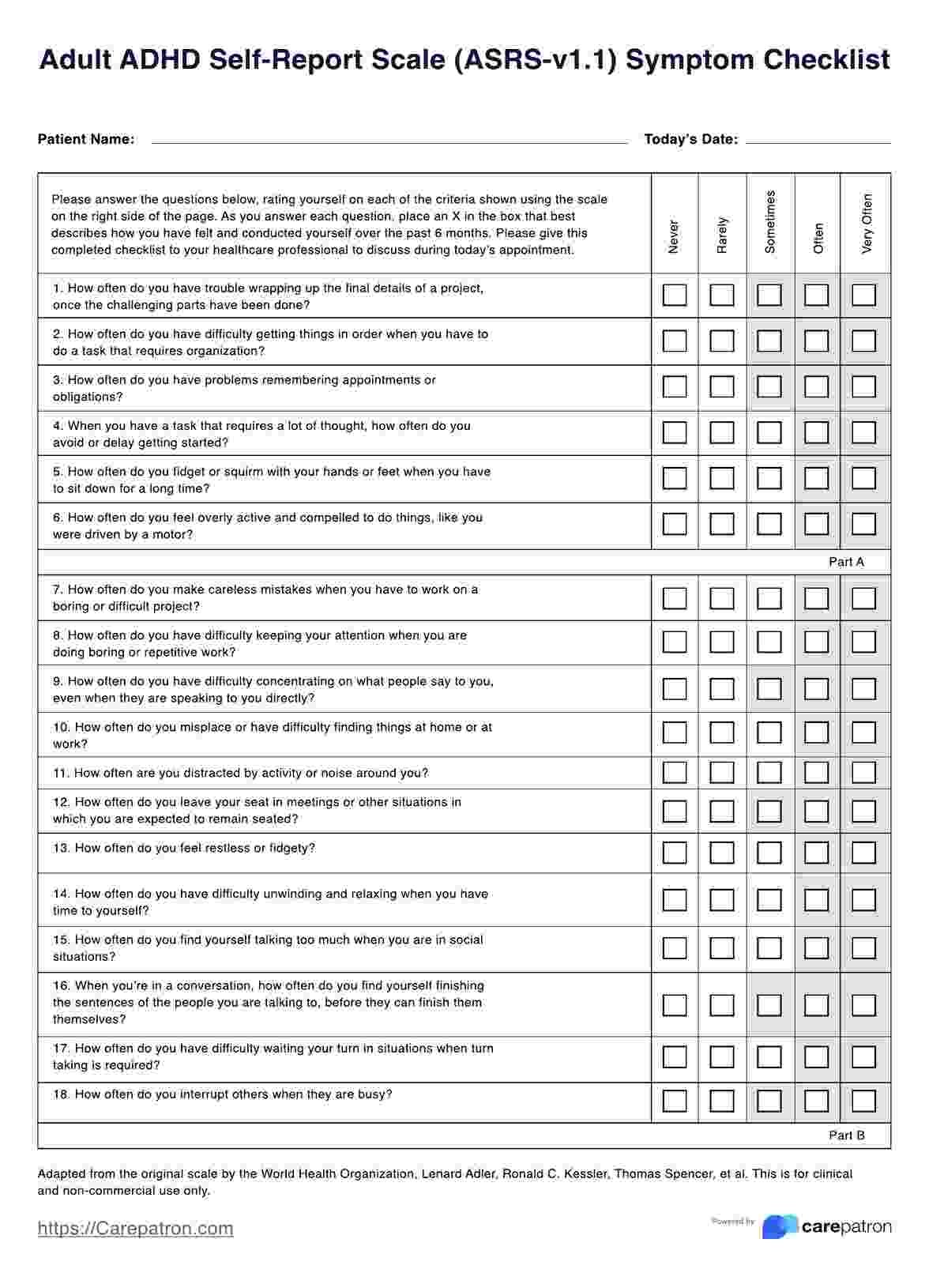It shouldn’t take longer than five minutes, but it’s totally fine if your patient takes longer than that. Just make sure to come to an agreement as to when you should receive a fully-accomplished copy from them.

Adult ADHD Self-Report Scale
Issue the Adult ADHD Self-Report Scale to patients who suspect themselves of having ADHD to help them decide their next treatment and assessment steps.
Adult ADHD Self-Report Scale Template
Commonly asked questions
There’s no scoring for this scale. What you need to look out for is if they pick answers that are in boxes with a darker shade. If they have four or more in Part A, and they also have a bunch under Part B, you will need to conduct a further examination of your patient.
You’re definitely allowed to use this. It’s a self-report scale, after all. However, please do not self-diagnose yourself with ADHD. If you have four or more answers in the shaded boxes of Part A, please go see a professional for help so they can better assess your symptoms of ADHD.
EHR and practice management software
Get started for free
*No credit card required
Free
$0/usd
Unlimited clients
Telehealth
1GB of storage
Client portal text
Automated billing and online payments











